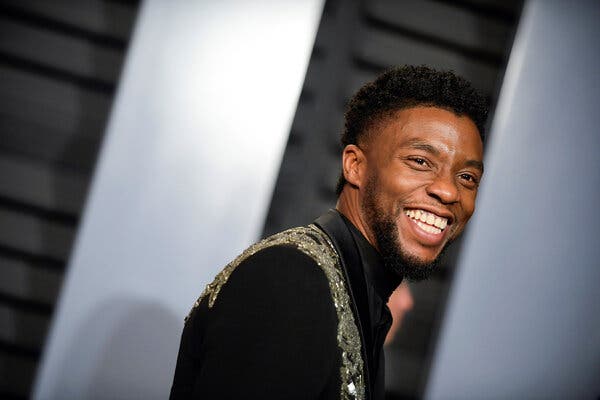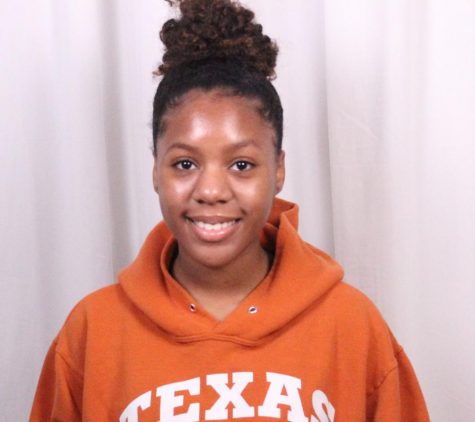The Importance of Representation

Chadwick Boseman’s death has caused for recollection of his work, and a further call for more representation in the media.
The death of actor Chadwick Boseman who played ground-breaking characters, such as, Jackie Robinson, Thurgood Marshall, and ,most famously, Black Panther, heavily affected fans all across the world. With feelings of grief and sadness, many fans decided to reflect back on the roles Boseman played and their importance. People of color have often played supporting roles in Hollywood; however, there have been many groundbreaking films that star people of color in more recent times. For example, the 2018 romantic comedy, Crazy Rich Asians, showcases a majority Asian cast and depicts the traditionalism within specific cultures in a more lighthearted manner. The 2017 family movie, Coco, showcases the Mexican holiday, Dia de los Muertos, otherwise known as Day of the Dead. The movie highlights Mexican culture by incorporating Mexican traditions and the Spanish language into the film. The 2018 Marvel superhero movie, Black Panther, incorporated African and African American cultures into the movie and representation to two groups who have previously felt underrepresented. Additionally,, Beyoncé released Black is King, a reimagination of the popular Disney film, The Lion King, which showcased the beauty of black people and Africa in a musical-film format.
Many TV shows on Disney Channel and Nickelodeon featured mainly white casts, where the people of color who were on the show enforced racial stereotypes. For example, Disney’s Austin and Ally, Good Luck Charlie, and Jessie all enforced negative stereotypes of the minorities that starred on the shows. Both Good Luck Charlie and Jessie played on the angry black woman stereotype with Ivy and Zuri, respectively, who were consistently portrayed as sassy. More specifically to Jessie, the showrunners decided to run with the smart, Asian stereotype for the character, Ravi and the dumb, blonde stereotype for Peyton List’s character, Emma. On Austin and Ally, one of the main characters Trish, who was Mexican, could never keep a job, and was often portrayed as lazy. Junior, Noah Siohna, thinks that the stereotypes portrayed in the shows he watched growing up had a negative impact on him.
“Growing up most of the shows I watched had an all white cast or mainly all white cast, so there wasn’t a lot of people who looked like me on the TV tv shows I watched, so I feel like that kind of made me feel like I wasn’t as good as people with lighter skin colors because there’s a reason they wouldn’t put darker skinned people on TV. It also made me feel like I had to portray a certain image to fit into what little I did see on TV,” Siohna said.
Not only does lack of representation affect the way impressionable minorities act, it can also affect the way they see themselves. Junior, Kaley Ngo, says that by not seeing people who looked like her in the media, it made her feel inferior to those who were constantly being represented.
“Repeatedly seeing the beauty standards being a white, blonde, and blue eyed girl definitely impacted how I viewed myself in a negative way. I would constantly despise my small eyelids, wishing mine were like ‘that girl.’ I began to become extremely insecure to the point where I felt inferior in terms of my looks, culture, and personality. My desire to become like the girls I envied slowly began to deteriorate once I was able to accept myself. Now, I am proud to be able to speak another language, be born of hardworking, immigrant parents, and celebrate cultures unique to society here,” Ngo said
Many minority children go through a phase of wanting to be Caucasian in order to fit into the beauty standards that are set in place by the media. Junior, Madison Martinez, says that she used to want to look as Caucasian as possible.
“Growing up, I remember I would always straighten my hair so I could look as white as possible I felt like I had to alter myself to fit into the European beauty standards, looking back that definitely had a big affect on my self esteem, but I’ve learned to love myself and my curls and I know that there is more than one beauty standard,” Martinez said.
However, there is progress being made. More and more TV shows and movies are including diverse casts and starring a person of color. Junior, Skylar Parker, says that she has minority characters to look up to.
“Growing up, I looked up to Princess Tiana. She was the first black princess and she worked hard to achieve her dreams, so she was definitely a role model for me. Now that I’m older, I really look up to Beyoncé not only for her music career, but for her work in Black is King that is the first time I’ve really seen black people of all shades, shapes, and hair textures showcased and portrayed as beautiful. It just made me feel proud to be black and like I was beautiful,” Parker said.
The lack of representation for people of color can sometimes go unseen by Caucasians. Freshman, Dalton Lyles, says that he noticed stereotypes, but not a lack of diversity.
”Sometimes I did see a lack of representation for people of color on TV, but for the majority, I didn’t see it. I feel like the kids were pretty diverse; however, with adult shows I tend to see people of color portrayed as ‘dangerous’ and as if we are to stay away from them,” Lyles said.
Representation in the media not only affects how one sees themselves, but can also impact how one acts therefore it is important that people of color be portrayed in a positive way.

